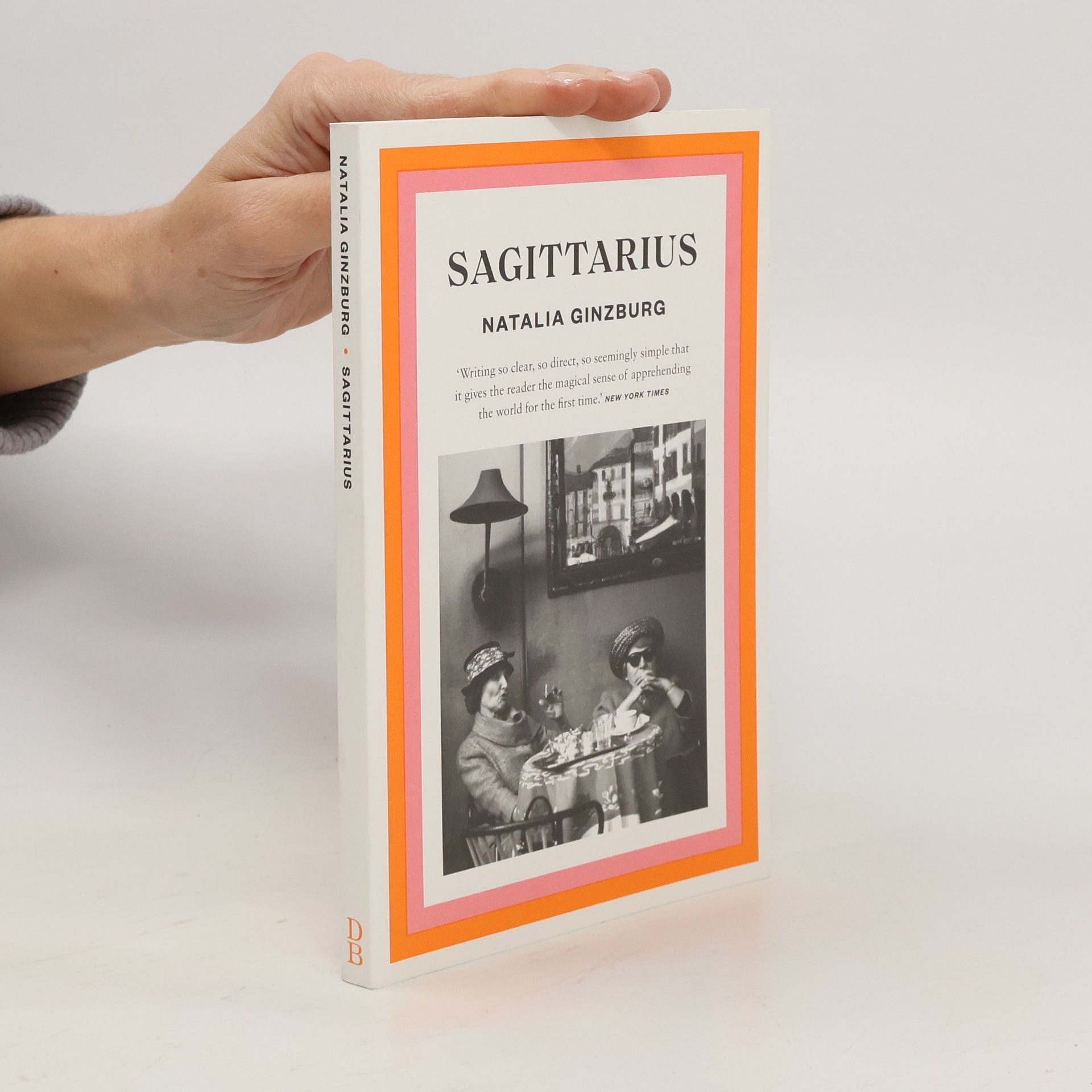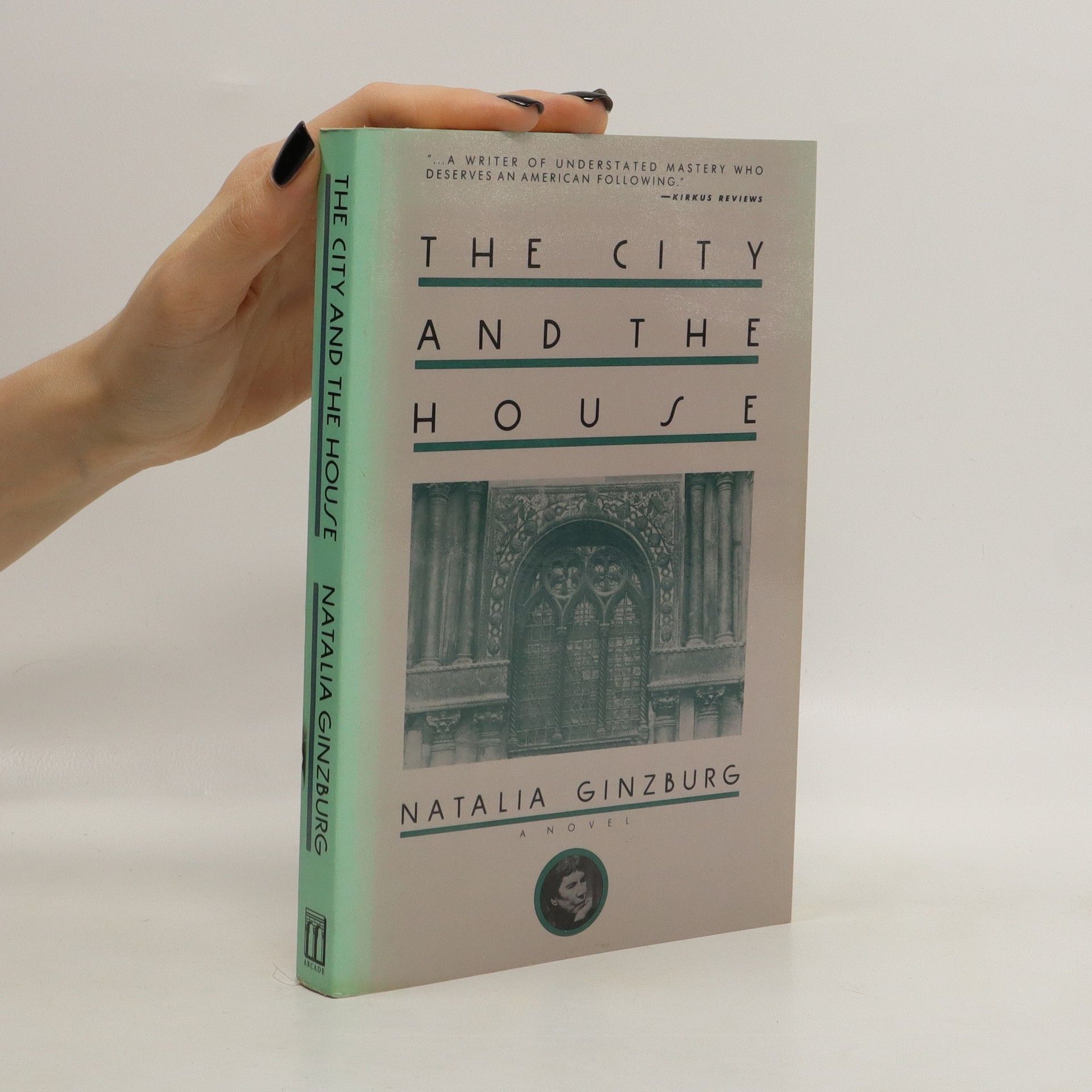Přední italská prozatérka líčí v románě formou přímého vyprávění prolínaného dopisy osudy jedné moderní římské buržoazní rodiny a jejích přátel.
Natalia Ginzburg Knihy
Natalia Ginzburg byla italská autorka, jejíž dílo se zabývalo rodinnými vztahy a politickými událostmi během a po fašistických letech a druhé světové válce. Zkoumala filozofické otázky prostřednictvím románů, povídek a esejí, čímž si získala uznání za svůj jedinečný styl. Její próza se vyznačuje pronikavým vhledem do lidské povahy a komplexnosti mezilidských vztahů. Ginzburgina díla i nadále rezonují s čtenáři pro svou upřímnost a hluboké zamyšlení nad životem.


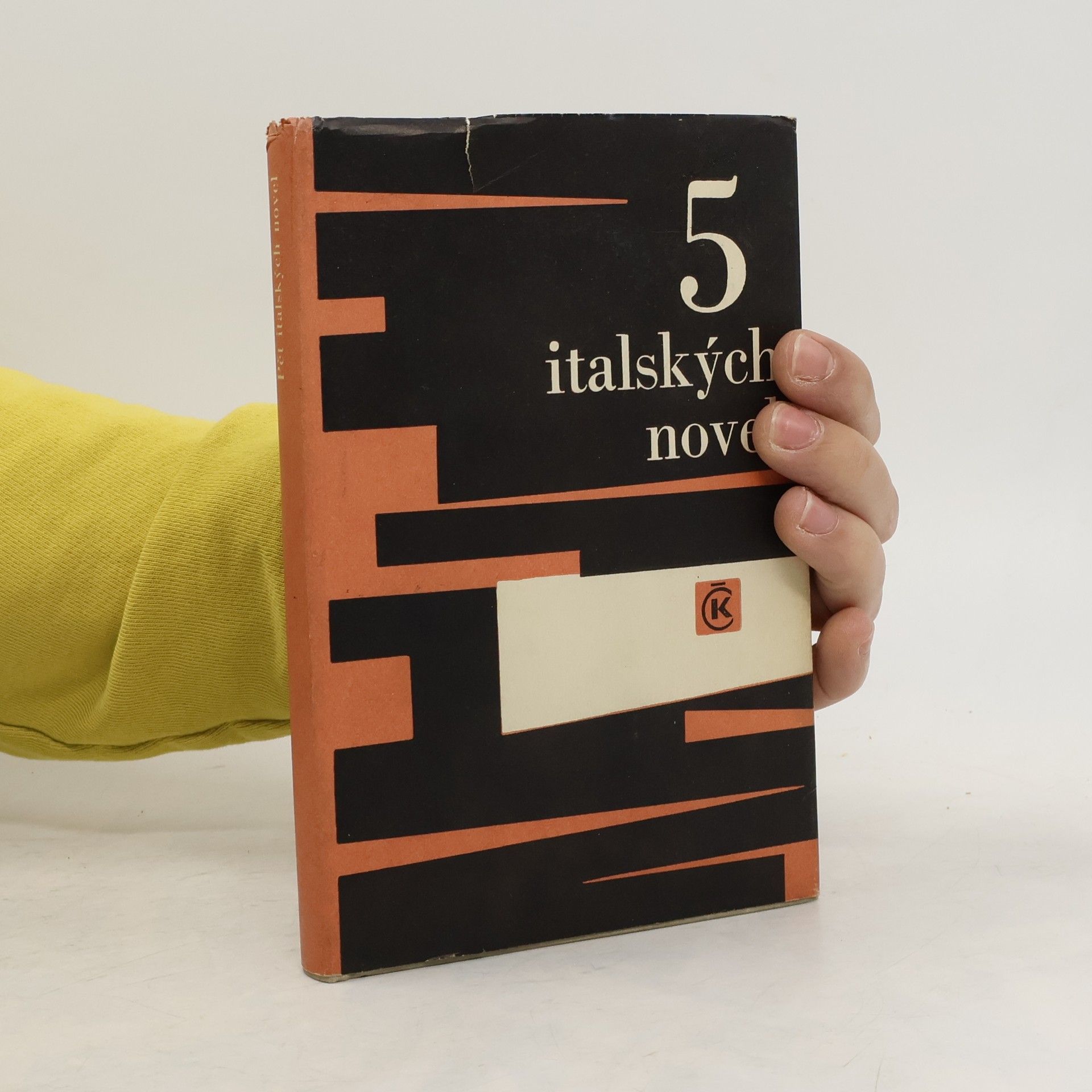
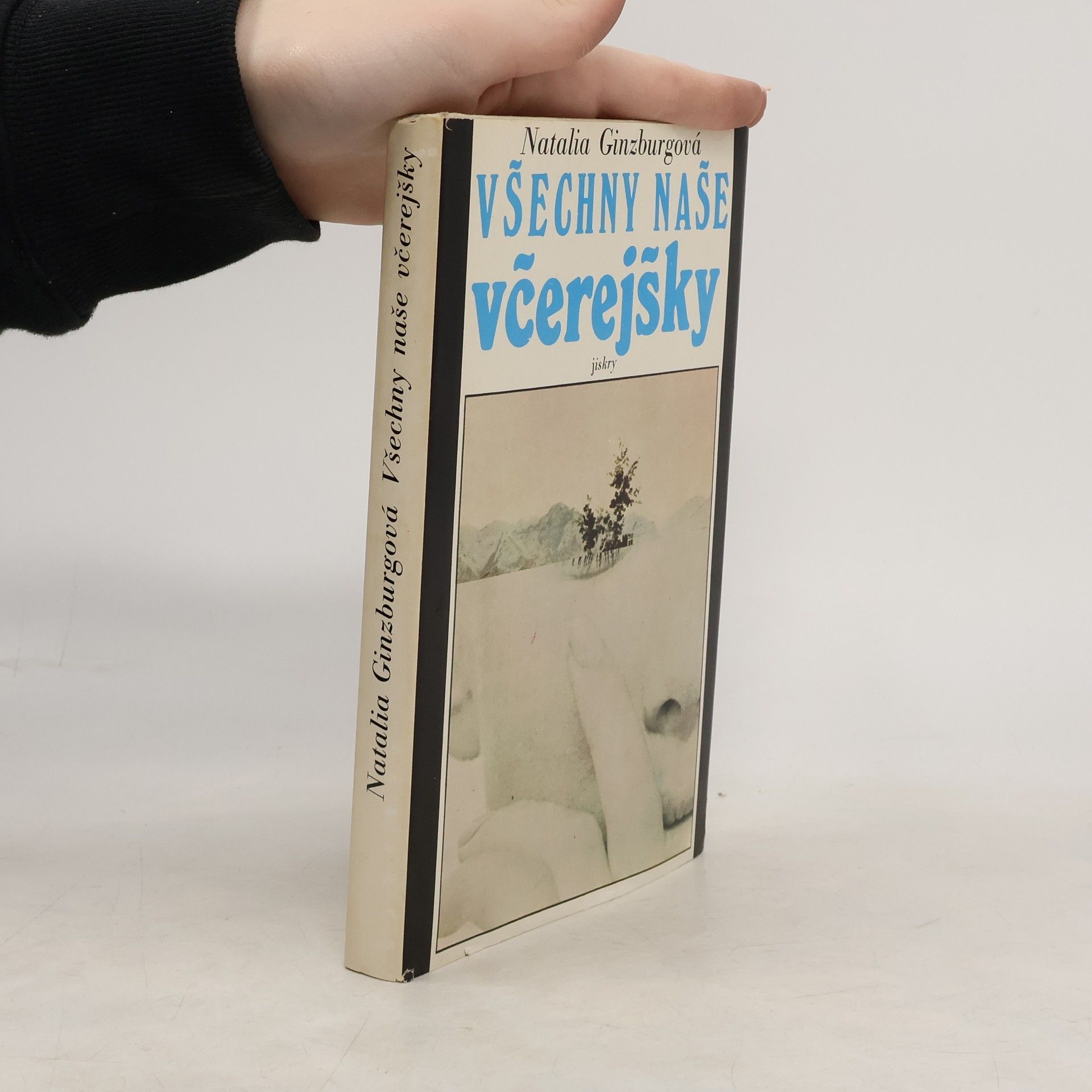


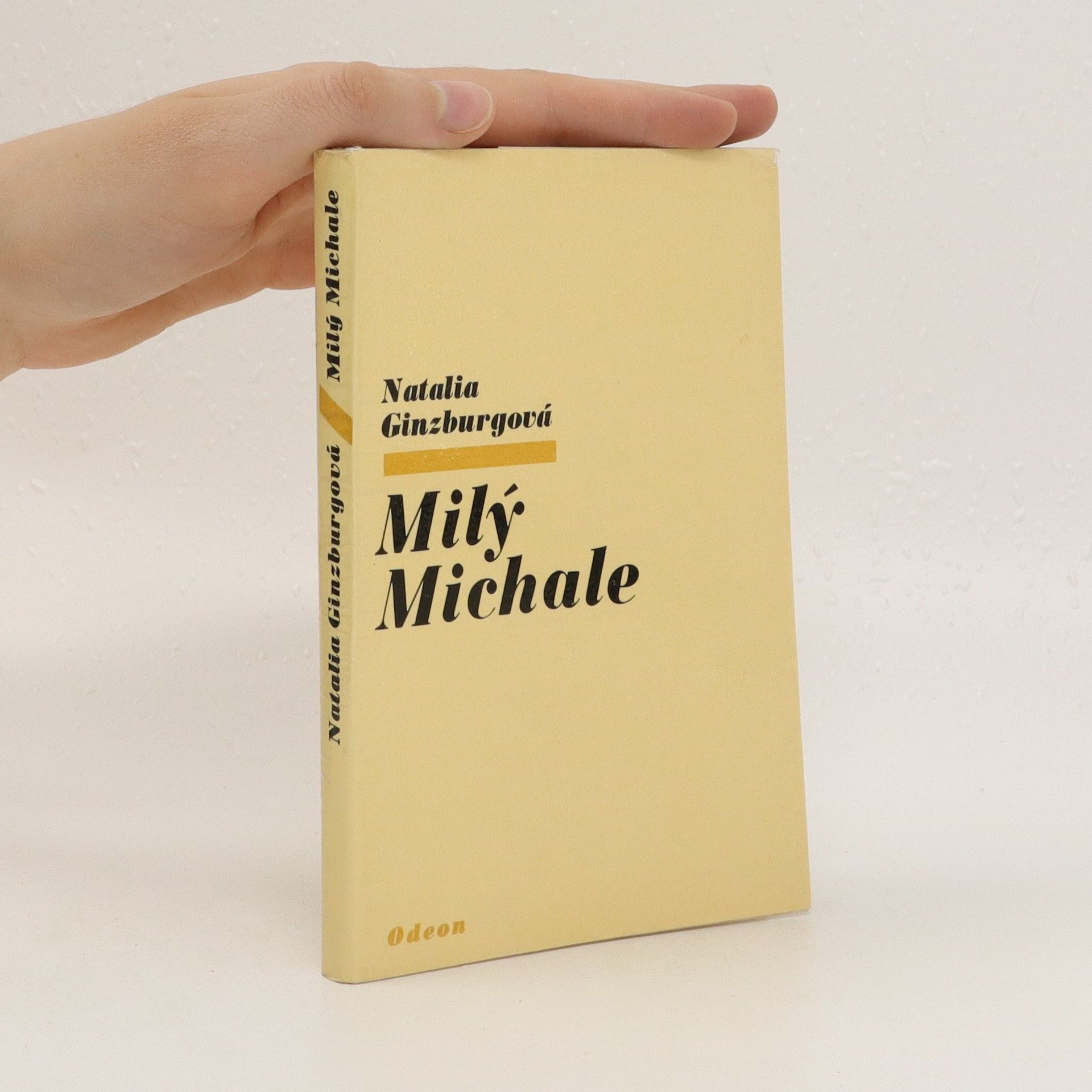
Román o životě italské inteligence mezi dvěma světovými válkami. Rodinná kronika je výpovědí o vlastním dětství a mládí, o celé rodině. Známá italská spisovatelka zavádí v románě do Itálie a zejména pak do průmyslového Turína mezi dvěma válkami a v postupném pohledu dívenky, manželky a matky zachycuje mikroklima tehdejší pokrokové rodiny a přibližuje život soudobé inteligence.
Rodina Manzoniů
- 309 stránek
- 11 hodin čtení
Rodinná sága rozvětvené italské rodiny Manzoniů, kde je jako hlava rodiny uváděn autor Snoubenců, který je Italskými literáty považován za vrcholný román, jako je u nás považována Němcové Babička.
Román zavádí čtenáře do severoitalského městečka v předvečer druhé světové války. Dospívající studentka Anna intenzívně prožívá osobní, rodinné i společenské události, chvíle štěstí, první lásku a zklamání, ztrátu jistot a iluzí i tragické a dramatické situace. Svět kolem sebe vidí bezelstnýma očima šestnáctileté dívky, která se dovede dívat upřímně a nelítostně. A právě tento pohled čtenáře strhne, připomene mu vlastní mládí, kdy se rozhodoval sám a bez cizí pomoci, kdy ztrácel dětská kamarádství a uzavíral - mnohdy obtížně a bolestně -nová životní přátelství a trvalé svazky. Natalia Ginzburgová nekomentuje, nesoudí, nechává promlouvat události. Příběh Anny, jejích sourozenců a přátel je zachycen se smyslem pro psychologický a přitom společensky obsažný detail. Vzniká tak docela ojedinělé spojení emotivního přístupu k životnímu materiálu s nenásilným, ale důkladným rozlišením postav podle společenských kritérií. Autorka současně dokáže zbavit gesta svých postav rétoriky a naplnit je umělecky průkazným a svěžím realismem. A tak románu nechybí ani historický půdorys doby, ani její prožitek, ani jedinečné a poutavé životní osudy.
Pět prací pěti italských autorů, z nichž každý představuje výrazný a odlišný typ. Jestliže každá z těchto próz představuje proto vždy i jiný přístup k realitě, jedno zůstává všem těmto povídkám společné: je to hluboké a upřímné úsilí o poznání pravé tváře dnešního člověka. 1. Alberto Moravia: Neposlušnost; 2. Giorgio Bassani: Dlouhá noc v 43.; 3. Italo Calvino: Sčítatelův den; 4. Natalia Ginzburgová: Ve znamení střelce; 5. Umberto Simonetta: Až do rána. Doslov napsal Josef Felix.
Vzal jsem si tě pro zábavu / Oberon
- 97 stránek
- 4 hodiny čtení
Publikace vyšla v rámci projektu Itálie v Praze - Cesty divadla 2004. Scénické čtení her se uskutečnilo v Divadle Kolowrat ve dnech 11.-12. prosince 2004.
Valentino
- 210 stránek
- 8 hodin čtení
'So there is no one to whom I can speak the words that most need to be spoken, about the events which most closely concern our family and what has happened to us; I have to keep them bottled up inside me and there are times when they threaten to choke me.' Valentino is the spoiled child of doting parents who have no doubt he will be 'a man of consequence'. His sisters, however, see him for what he really is: a lazy, indifferent and self-absorbed medical student who whiles away time with nights out on the town, resulting in a string of failed and incomplete classes. His parents' dreams are soon undone when, out of the blue, Valentino brings home Maddalena, a wealthy and strikingly ugly wife. What ensues is yet another work of quiet devastation told with Ginzburg's unflinching moral realism and keen psychological insight, as the family is scandalised by Valentino's decision and suspicious of Maddalena's motives.
Family and Borghesia
- 120 stránek
- 5 hodin čtení
Two novellas about domestic life, isolation, and the passing of time by one of the finest Italian writers of the twentieth century. Carmine, an architect, and Ivana, a translator, lived together long ago and even had a child, but the child died, and their relationship fell apart, and Carmine married Ninetta, and their child is Dodò, who Carmine feels is a little dull, and these days Carmine is still spending every evening with Ivana, but Ninetta has nothing to say about that. Family, the first of these two novellas from the 1970s, is an examination, at first comic, then progressively dark, about how time passes and life goes on and people circle around the opportunities they had missed, missing more as they do, until finally time is up. Borghesia, about a widow who keeps acquiring and losing the Siamese cats she hopes will keep her company in her loneliness, explores similar ground, along with the confusions of feeling and domestic life that came with the loosening social strictures of the 1970s. “She remembered saying that there were three things in life you should always refuse,” thinks one of Natalia Ginzburg’s characters, beginning to age out of youth: “Hypocrisy, resignation, and unhappiness. But it was impossible to shield yourself from those three things. Life was full of them and there was no holding them back.”
Sagittarius
- 128 stránek
- 5 hodin čtení
'At long last she was playing the role she had always dreamt about, that of a mother, full of anxious solicitude, preparing to confide her daughter into the hands of a young man with good intentions, good prospects and a good character.' A mother decides to follow her daughter to the city, she settles in the suburbs with her older daughter and son-in-law in tow. She quickly grows restless and is eager to find new friends. Brassy, bossy and perpetually dissatisfied she strikes up a friendship with the mysterious Scilla, and soon the two women are planning to open an art gallery. But there is more to Scilla than meets the eye. After a series of afternoons spent at bars having coffee granitas with cream, and at Scilla's apartment on Via Tripoli, it quickly becomes apparent that the connections and the cul-tured life promised by Scilla may never materialise, despite always being just within reach. What proceeds is a story of the dissolution of a family, and the role that class plays in its downfall. Sagittarius is the story of misplaced confidence and am-bition gone awry, recounted by a wary daughter.
The city is Rome, the hub of Italian life and culture. The house is Le Margherite, a home where the sprawling cast of The City and the House is welcome. At the center of this lush epistolary novel is Lucrezia, mother of five, and lover of many. Among her lovers—and perhaps the father of one of her children—is Giuseppe. After the sale of Le Margherite, the characters wander aimlessly as if in search of a lost paradise.

